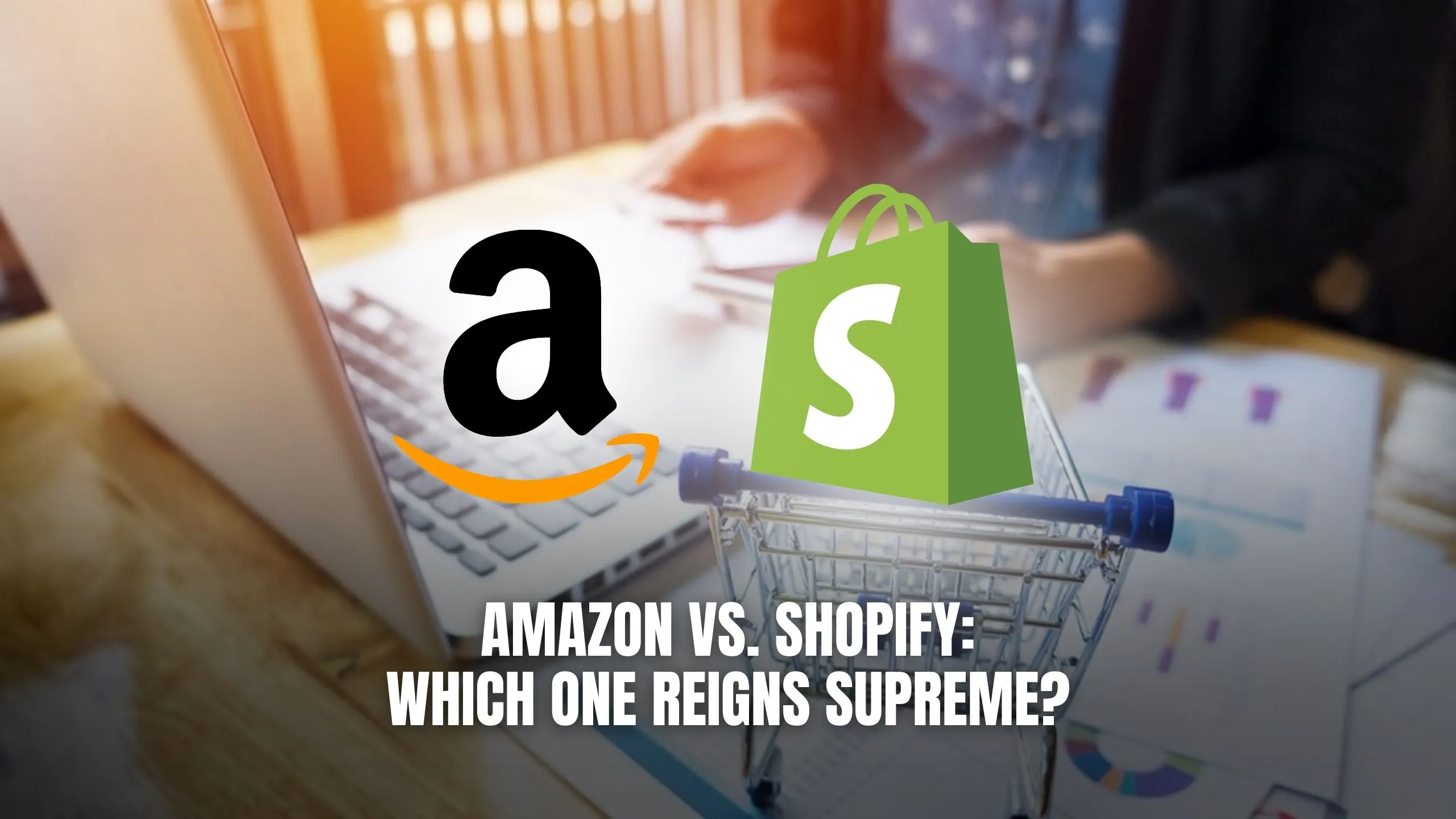Amazon vs. Shopify: Which One Reigns Supreme?


Amazon vs. Shopify: Which One Reigns Supreme?
When it comes to choosing an e-commerce platform, Amazon and Shopify stand out as two of the most popular options. In this deep dive, we’ll compare their features, functionalities, and suitability for different types of businesses, helping you determine which platform reigns supreme for your online store needs.
1. Marketplace vs. Standalone Platform
Amazon operates primarily as an online marketplace, where businesses can list their products alongside millions of others. It offers extensive reach, access to a large customer base, and fulfillment services through Fulfillment by Amazon (FBA). On the other hand, Shopify is a standalone e-commerce platform, providing merchants with full control over their online stores, including customization options, branding, and marketing strategies.
2. Branding and Customization
Shopify shines in terms of branding and customization, allowing merchants to create unique, branded storefronts tailored to their vision. With a wide range of themes, plugins, and integrations, Shopify enables businesses to create a seamless and personalized shopping experience for their customers. In contrast, while Amazon provides some branding options, businesses operate within the Amazon ecosystem, limiting customization and brand visibility.
3. Fees and Pricing
Amazon charges various fees, including referral fees, fulfillment fees, and subscription fees for its professional selling plan. While these fees offer access to Amazon’s vast customer base and fulfillment services, they can eat into profit margins for some businesses. Shopify, on the other hand, offers transparent pricing plans with a monthly subscription fee, plus transaction fees for using external payment gateways. However, Shopify provides more control over pricing and fees, allowing businesses to optimize costs based on their sales volume and preferences.
4. Integration and Scalability
Both Amazon and Shopify offer integration with various third-party apps and services to enhance functionality and scalability. Shopify’s App Store provides access to thousands of apps for marketing, sales, inventory management, and more, allowing businesses to customize their stores according to their needs. Amazon also offers integration with third-party apps and services, although the scope may be more limited compared to Shopify’s ecosystem.
5. Customer Support and Community
Shopify is known for its robust customer support and extensive community resources, including forums, tutorials, and webinars. Merchants can access help guides, 24/7 support, and dedicated account managers to address any issues or questions they may have. While Amazon provides seller support and resources, the level of support may vary, especially for smaller businesses or individual sellers.
Relevant SaaS Products:
- Shopify: Create and customize your online store with Shopify’s powerful e-commerce platform, offering a range of features for branding, marketing, and sales optimization.
- Amazon Seller Central: Access Amazon’s seller platform to list products, manage orders, and leverage fulfillment services, tapping into Amazon’s vast customer base and infrastructure.
- PayPal: Accept payments securely and seamlessly with PayPal’s payment gateway integration, providing customers with a trusted and convenient checkout experience.
- Klaviyo: Drive sales and engage customers with targeted email marketing campaigns using Klaviyo’s powerful e-commerce marketing platform, integrated seamlessly with Shopify.
- ShipStation: Streamline order fulfillment and shipping processes with ShipStation’s shipping software, integrating with both Shopify and Amazon for efficient order management.
Conclusion
In conclusion, both Amazon and Shopify offer distinct advantages and cater to different types of businesses. Amazon’s marketplace model provides extensive reach and fulfillment services, making it ideal for businesses looking to leverage Amazon’s customer base and infrastructure. On the other hand, Shopify offers greater control, customization, and scalability, making it suitable for businesses seeking to establish their brand and create a unique online presence. Ultimately, the choice between Amazon and Shopify depends on your business goals, preferences, and target market.
Elevate Your E-commerce Strategy with Subscribed.fyi!
Ready to take your e-commerce business to new heights? Subscribed.fyi offers exclusive deals on essential SaaS tools, including Shopify and Amazon integrations. Sign up for free to unlock secret deals and access savings on e-commerce platforms and other essential resources. Enhance your online store, optimize operations, and stay ahead in the competitive e-commerce landscape with Subscribed.fyi.
Relevant Links:





